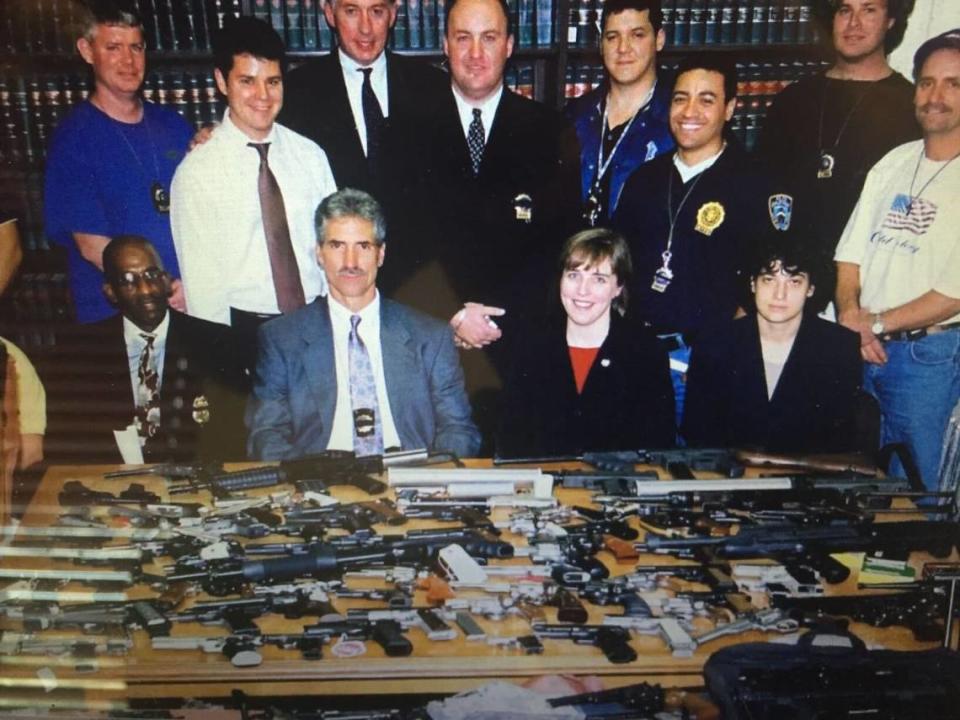Charlotte police, ATF tracing guns used in mass shooting. In 2024, that’s not so easy.
Charlotte-Mecklenburg police haven’t commented recently about how close investigators are to finding out how a man who shot eight officers in April acquired two guns.
There’s one place law enforcement goes to find those answers — a small city about 80 miles northwest of Washington, D.C.
Terry Clark Hughes Jr. used an AR-15 rifle in the shootout, and also had a handgun, police have said. Because he was convicted of a felony in 2010, he could not legally own a gun, and police have said they want to find out where the guns came from.
The National Tracing Center in Martinsburg, West Virginia, is the country’s only firearms training facility, ATF spokesperson Corey Ray said in an email.
How gun tracing works
“Firearms recovered at crime scenes are traced through the NTC and the information from the trace is provided to investigators to help connect a firearm to the purchaser,” he said.
That trace gives the gun’s history: where it was manufactured or imported, where it was originally sold, when someone bought it and who that buyer might have been, Ray said.
“It can help determine if the firearm was stolen or if the gun was purchased legally or illegally,” he added.
Over 623,000 traces were submitted there in just one year, 2022, he said. And 25,000 of those requests came from North Carolina.
Some statistics from that year give ideas of where Hughes’ guns might have come from. Ray said that of those traces:
15,638 guns were traced back to North Carolina.
Over 2,000 traced back to nearby states like South Carolina, Georgia and Florida.
When the guns were traced to North Carolina, they most often came from Charlotte.
Expert: Illegal market has made tracing harder
There are some new difficulties in tracing guns, though.
“The job is becoming more and more difficult,” said Felipe Rodriguez, an adjunct professor at the John Jay College of Criminal Justice. Before that job, he did some gun tracing of his own as a detective in New York City.
Ghost guns — guns that have no serial number — and the illegal gun market in general make the tracing process more difficult, he said. And then there’s guns that get stolen and pass through new hands.
Finding out where a gun came from is like moving backwards one link at a time. And when one of those links is lost, key information is lost, too.

There’s no simple solution, he said, but stricter rules and enforcement for gun purchases, like a mandatory federal background check and fingerprinting, would be helpful.
Federal law says that background checks have to be performed on anyone buying a gun from a federally licensed gun dealer. But only 40% of the guns sold in the country are sold through a dealer with a federal license, according to the American Academy of Pediatrics.
“We just need, on the federal level, to come out with a common sense approach,” Rodriguez said.
Several agencies involved
Ronald Davis, the U.S. Marshals Service director, on the day after the April 29 shooting said his agency would work closely with the ATF to find where the weapons came from.
“We are looking at how he acquired all of the guns,” CMPD Police Chief Johnny Jennings said at a press conference the day after the shooting. “We are making progress on that, and we’ll be able to determine that based on the purchase of the firearms, who purchased them and how he acquired them from that individual.”
Recently, the United States Attorney’s Office for the Western District of North Carolina announced several people being prosecuted for work in the illegal gun business.
Jadarius Connell Potts of Charlotte, for example, was indicted June 18 on four federal charges alleging he sold guns without a license in Mecklenburg County and was illegally in possession of an AM-15 rifle and two pistols.
Lia Bantavani, a spokesperson for U.S. Attorney Dena King, said the office had no comment on the April 29 shooting case because it remained an ongoing investigation.


